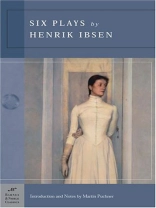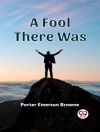Six Plays by Henrik Ibsen is part of the
Barnes & Noble Classics
series, which offers quality editions at affordable prices to the student and the general reader, including new scholarship, thoughtful design, and pages of carefully crafted extras. Here are some of the remarkable features of
Barnes & Noble Classics:
- New introductions commissioned from todays top writers and scholars
- Biographies of the authors
- Chronologies of contemporary historical, biographical, and cultural events
- Footnotes and endnotes
- Selective discussions of imitations, parodies, poems, books, plays, paintings, operas, statuary, and films inspired by the work
- Comments by other famous authors
- Study questions to challenge the readers viewpoints and expectations
- Bibliographies for further reading
- Indices & Glossaries, when appropriate
Barnes & Noble Classics pulls together a constellation of influences—biographical, historical, and literary—to enrich each readers understanding of these enduring works.
The father of modern drama,
Henrik Ibsen shook off the stale conventions of nineteenth-century theater and made the stage play an instrument for brilliantly illuminating the dark recesses of human nature.
After writing historical plays and imaginative epic dramas in verse, such as Peer Gynt, Ibsen turned away from history and romanticism to focus instead on the problems of the individual and modern society. The plays of his middle period—A Doll’s House, Ghosts, The Wild Duck, and his most popular play, Hedda Gabler—are masterpieces of stark psychological realism. In his final plays, including The Master Builder, Ibsen mixed realism and symbolism to enrich his examination of our subconscious drives and urges.
Ibsen was criticized and denounced during his lifetime for expanding the boundaries of what is acceptable fare for the stage. Audiences were shocked when he wrote of feminist yearnings, venereal disease, and the deep emotions that underlie the sadness involved in being human. James Joyce put the criticism in perspective: “Henrik Ibsen is one of the world’s great men before whom criticism can make but feeble show. . . . When the art of a dramatist is perfect the critic is superfluous.” Ibsen has since come to be considered one of our greatest playwrights.
Martin Puchner is Assistant Professor of English and comparative literature at Columbia University. He is the author of Stage Fright: Modernism, Anti-Theatricality and Drama (Johns Hopkins University Press, 2002).












